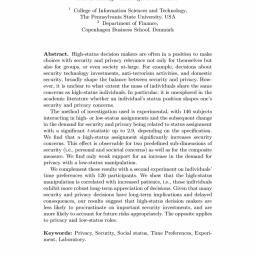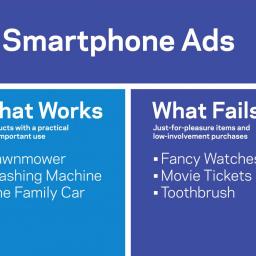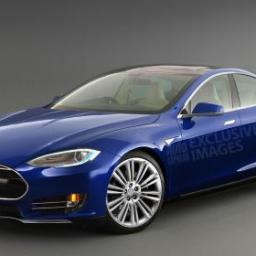 KDE 5 has been released
KDE 5 has been released. Er, that's the
KDE 5 Plasma Desktop since the folks at KDE are now very particular about making sure you call it Plasma. But nomenclature isn't important; what's important is what this latest evolution of the desktop brings to the user, and in my opinion it's quite a lot. Plus, two big things: First, unlike the transition from KDE3 -> KDE4, which broke everything, the transition from KDE4 -> KDE5 should be automatic. Secondly, this article points out everything has gotten
faster, which makes clear a lot of energy has gone into optimizing underneath the hood. Sounds good!
- Converged Shell: means the same components can be used to design a desktop or tablet interface or phone interface. It lays the groundwork for a device that adapts its interface to whatever you're holding, like the Asus Padphone [ed. note: which is pretty damned cool!]
- Modernized launchers: 3 of them, including one called Kicker (for you KDE3 nostalgics like me)
- Improved notification area: leads to fewer distractions, apparently
- Better support for high DPI displays
In the words of Steven J. Vaughan-Nichols
1:
When KDE made a radical change to its popular Linux desktop in 2008 in KDE 4, I hated it. Over a year and many changes later, I finally found KDE 4.3 usable. This time, with the just-released KDE Plasma 5, I didn't have to wait for it to be usable. The new KDE is already good to go.
1Get a nickname, dude! SJVN is too much to type!
The
Sword of Damoclese may be well about to drop over at Microsoft today.
Last week, Satya Nadella promised a big shake-up in the way Microsoft does business, corporate-speak for a reorganization many would say is long-overdue.
Today is the day.
Employees at the company's campus in Redmond, Wash., are already bracing for the news. Human resources managers have begun reserving conference rooms for most of Thursday, most likely a sign that they will be used to meet with laid-off employees, a person with knowledge of the plans said. Employees will have an opportunity to question Microsoft's chief executive, Satya Nadella, about the cuts on Friday at a regular town hall meeting that was scheduled before the exact timing of the layoffs was known.
Frank Shaw, a company spokesman, declined to comment.

New research
(abstract) suggests that those in higher-level positions are
more likely to make decisions that value security over privacy, and be more determined to carry out those decisions. In one experiment, people who were appointed supervisors showed a significant increase in their concern for security. The researchers also found that participants who were assigned a worker-level status expressed higher concern for privacy, but not significantly higher.
We find that a high-status assignment significantly increases security concerns. This effect is observable for two predefined sub-dimensions of security (i.e., personal and societal concerns) as well as for the composite measure. We find only weak support for an increase in the demand for privacy with a low-status manipulation.
[Ed. note: that would explain why your boss is always more conservative/risk averse than you'd like. Maybe the perks and salary are too good to give up, so he'll do anything to stay where he is? In which case: let's pay them less.]

Columbia University researchers
have just published a study into the effectiveness of mobile adverts and come to some conclusions that may bode well for people who worry their smartphones will someday be yet another vector for annoying marketing. Turns out, adverts for many products are ineffective on mobile devices.
MDA campaigns that ran between 2007 and 2010 and involved 39,946 consumers show that MDA campaigns significantly increased consumers' favorable attitudes and purchase intentions only when the campaigns advertised products that were higher (vs. lower) involvement and utilitarian (vs. hedonic).
They are most effective when a product is either practical or are something that takes thought and investigation before making a purchase. Furthermore:
- Mobile ads do work for products that have a practical and important use, like a lawn mower or a washing machine
- Mobile ads do work for high-involvement products (a lot of time, thought and energy is placed into the decision, like a family car).
- Mobile ads don't work for just-for-pleasure items, like fancy watches
- Mobile ads don't work for low-involvement purchases like movie tickets or toothbrush (ones that pose a low risk to the buyer)
The study's abstract is available here.

Since the
Aereo decision caused Aereo to shutter its service, we haven't heard much. It appears now that things are
still happening with the company.
Apparently Aereo is asking that, since the Supreme Court declared it a "cable company", it should
immediately receive cable company status, which the FCC has been previously reluctant to grant to internet-only companies. Deadline Hollywood has a
fairly informative writeup. This would allow it to enter into negotiations for content with broadcasters, who, at least according to the law, would be required to "negotiate in good faith". Considering that many of them are
not Aereo fans and some major content providers have threatened to
pull their content if Aereo wins, Aereo might have an uphill battle despite that "good faith negotiation" requirement - if the FCC even permits the status change.
If this last-ditch effort fails, there are
still alternatives to cable, but none of them are as simple and as cheap, and most lack the extra features of Aereo. Good luck, Aereo.
 KDE 5 has been released. Er, that's the KDE 5 Plasma Desktop since the folks at KDE are now very particular about making sure you call it Plasma. But nomenclature isn't important; what's important is what this latest evolution of the desktop brings to the user, and in my opinion it's quite a lot. Plus, two big things: First, unlike the transition from KDE3 -> KDE4, which broke everything, the transition from KDE4 -> KDE5 should be automatic. Secondly, this article points out everything has gotten faster, which makes clear a lot of energy has gone into optimizing underneath the hood. Sounds good!
KDE 5 has been released. Er, that's the KDE 5 Plasma Desktop since the folks at KDE are now very particular about making sure you call it Plasma. But nomenclature isn't important; what's important is what this latest evolution of the desktop brings to the user, and in my opinion it's quite a lot. Plus, two big things: First, unlike the transition from KDE3 -> KDE4, which broke everything, the transition from KDE4 -> KDE5 should be automatic. Secondly, this article points out everything has gotten faster, which makes clear a lot of energy has gone into optimizing underneath the hood. Sounds good!


